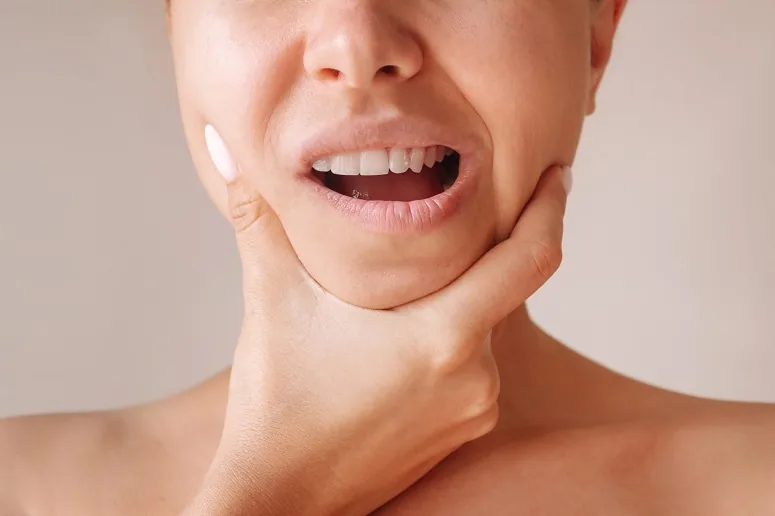
The temporomandibular joint (TMJ) connects your jawbone to your skull. You have one joint on each side of your jaw, and they act like a sliding hinge. If you have a TMJ disorder, it can cause pain in your jaw joint and in the muscles that control jaw movement. A TMJ disorder may be one of more than 30 conditions that cause pain and dysfunction in the jaw joint and muscles.
Finding the exact cause of a person's TMJ disorder is not easy. Your pain may be due to a combination of factors, such as genetics and arthritis. A jaw injury or eroded disk may also be to blame. Some people who have jaw pain also tend to clench or grind their teeth. In many cases, though, the cause of TMJ disorders is unclear and may simply result from everyday wear and tear.
Common Symptoms
Do you have TMJ disorder? Here are some signs{:target="_blank" rel="noopener"}:
- Jaw pain or tenderness when chewing or speaking
- Clicking or popping sounds when moving the jaw
- Difficulty or discomfort when opening or closing the mouth
- Locking of the jaw joint, preventing the mouth from opening or closing fully
- Pain in the neck and face
- Headaches and earaches
- Swelling in the face
- Changes in how the upper and lower teeth fit together
Diagnosis of TMJ Disorder
If you have any of the symptoms listed above, let your dentist know. They can discuss your symptoms and examine your jaw. They will probably have you open and close your mouth while they listen to your jaw. They may also feel your jaw and ask about any pain. The dentist will also observe the jaw's range of motion.
Your dentist can diagnose TMJ disorder with dental X-rays, CT scans, and MRIs. These tools will provide detailed images and examine your teeth and jaw to reveal any issues.
Treatment Options
Left untreated, TMJ disorder can lead to pain, alignment issues, and teeth grinding, which can damage your teeth. Symptoms can sometimes improve on their own. Many patients try conservative treatments such as self-care measures, physical therapy, and medications. In more severe cases, medical or dental interventions may be necessary, including dental splints, mouthguards, and corticosteroid injections. In rare cases, surgery may be needed to repair or replace the joint.
TMJ treatment varies from patient to patient. Your dentist will advise you as to which actions you can take to improve symptoms. Your dentist will start with conservative treatments before recommending major interventions such as injections and surgery. Surgery is done as a last resort, and while it may sound scary, many people do benefit from it.
Contact Comprehensive Dentistry Today
TMJ disorder is often a painful condition that causes tooth damage. If you are having trouble with your jaw and feel constant pain, let your dentist know so you can get proper treatment.
The team at Comprehensive Dentistry is well-trained and highly knowledgeable. Our Ypsilanti dentists pride themselves on top-notch customer service. To learn more about our comprehensive offering of services, call (734) 480-0033 or fill out the online form.
